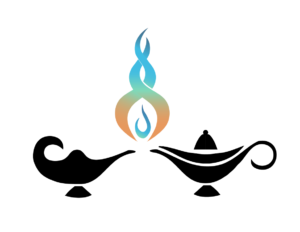Project Manager – Muslim-Christian Civil Society
(Full or Part-time)
Job Description
Project Manager – Muslim Christian Civil Society (Full or Part-time)
Job level: Manager
Accountable to: Programs Director
Location: Bethlehem District
Introduction: Established in 1990, Musalaha is a faith-based organization that teaches, trains, and facilitates reconciliation mainly between Israelis and Palestinians from diverse ethnic and religious backgrounds, as well as international groups, based on biblical principles of reconciliation.
Our Work: Musalaha’s definition of reconciliation is twofold. (1) Restoring Individual and Group Relationships – this means constructively engaging with the other side to rebuild trust and reclaiming one’s identity and narrative to be a source of goodness to one’s neighbor. This includes taking concrete steps towards a more just and peaceful environment. (2) Addressing Systematic Injustices – this means dealing with the core issues of the conflict and challenging policies, systems, legal structures, etc. that oppress people and cause an imbalance of power, which damages the ability to reconcile. While working through the process of reconciliation, Musalaha has developed a sustainable process, known as the 6 Stages of Reconciliation and a Curriculum of Reconciliation consisting of 24 chapters. Our work is implemented among women, young adults, youth, children, civil society leaders, Musalaha alumni, and other international settings around the globe.
Overarching purpose of the role:
This position must fulfill one of Musalaha’s strategic objectives: Strengthening and empowering Palestinian men and women to take an active role in Muslim-Christian reconciliation and leadership. This position must deliver on key behaviors (such as trust) in the purpose and benefit of Musalaha’s reconciliation approach to Muslim-Christian relations in Palestine. This position must aim to further intensify our reconciliation efforts amongst men and women by informing, convincing and guiding our diverse target groups.
Main aspects of this role consist of:
- Recruit – Reach out to men and women who are interested to build new relationships, engage on sensitive subjects regarding Muslim-Christian relations in Palestine, and serve the Palestinian population in line with Musalaha’s vision of reconciliation and its relevance locally and globally.
- Manage and Coordinate – Work with other Project Managers and team members with the purpose of successfully implementing all reconciliation-based activities for the different target groups.
- Report – Communicate in writing and verbally with the donors sponsoring the respective projects in a professional and timely manner. This may include writing applications, reports, sections for Musalaha’s newsletter, and conducting project evaluations.
Duties, Responsibilities and Tasks:
Management
- Provide leadership and strategic planning for Musalaha.
- Define and implement annual goals and objectives for Musalaha.
- Define and implement Musalaha standards, policies, and operating procedures for all aspects of Musalaha’s work.
- Manage Musalaha participants, facilitators, and volunteers.
- Develop and support Musalaha Civil Society group by developing the skills and effectiveness of each member of the team through individual support and supervision, appraisal, and development planning.
- Report to the direct manager, and contribute to Musalaha’s working groups, or other parts of Musalaha’s wider work, as requested.
- Budget preparation.
- Meet twice with other Musalaha groups to present on FoRB (Freedom of Religion or Belief) policies in different locations.
Operational
- To recruit Project Leaders and participants.
- To oversee the reconciliation ‘journey’ from initial application until the last debrief and evaluation.
- To oversee all Musalaha’s reconciliation-based activities, including accommodation, schedules, and additional programs activities.
- Ensure constant feedback and concerns from participants and partners and act upon the feedback.
- Coordinate and cooperate with existing reconciliation actors in the region.
- Execute activities based on budgets.
- To oversee and implement youth exchange programs annually.
Communication
- Provide content to the Communication Manager ensuring external communication of projects.
- Ensure effective internal communication within Musalaha, promoting a healthy organizational culture.
- Provide updates on projects in weekly staff meetings.
- Build and maintain relationships with key partners and stakeholders, including youth exchange programs.
Financial
- Ensure all financial expenditures of the projects are filed in accordance with organizational standards.
- Ensure all receipts are delivered to the accountant.
Essentials and Skills:
- Commitment to the visions and work of Musalaha.
- Commitment to Musalaha’s Code of Conduct.
- Excellent leadership, management, and organizational skills.
- Fluent in Arabic and English are a must.
- Proven track record of developing an organization, with experience in cross-cultural settings, budgets, and operations.
- Highly interpersonal and good team player.
- Ability to inspire and motivate groups of people.
Experience:
- 1-3 years of relevant professional experience in Project Management or lead change management.
- Work experience in cross-cultural settings and in globally diverse teams.
- University degree in International Relations/Political Science/, Social Science/or related field.
How to Apply:
- Please provide a full CV in English.
- Contact details of 2 references, one of whom must be your most recent employer.
- Provide a supporting statement (2-3 paragraphs) stating why you are applying for this post and explain how you will fulfil the requirements detailed above.
Applications should be emailed to daniel@musalaha.org using reference “(Your full name): Project Manager – Civil Society- M/C” in the subject. The closing date for applications is 5pm Jerusalem time on 31st of December 2024. If you do not hear back from us in the month of January, it means your application was unsuccessful.














